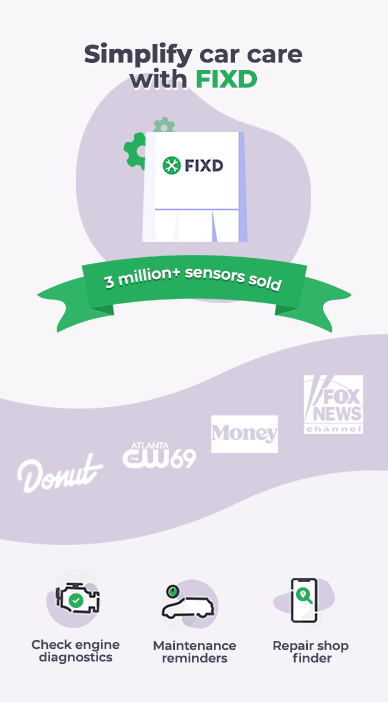The Average Cost to Replace a PCV Valve at a Mechanic is $76 to $92. The Average PCV Valve Labor Cost Is $20 to $27, Which You Can Save if You DIY.
This price range is based on national averages for all vehicles and does not factor in taxes, fees, or your particular make and model. Related repairs or maintenance may also be needed such as general engine service, piston repair, checking oil leaks, air filter replacement, and spark plug replacement. For a more accurate estimate based on your make, model, and location, use the RepairPal Fair Price Estimator.
Cost at the Mechanic: $76-$92
Parts: $52-$66
Labor: $20-$27
An engine’s crankcase has a one-way valve that reroutes gases back into the engine for combustion, and this valve is called the positive crankcase ventilation (PCV) valve. The PCV valve prevents those gasses from polluting the environment and developing sludge in the car’s other systems, such as engine oil. After a while, an old valve might not be able to close in time, leading to excess pressure, difficult engine performance, and increased emissions. PCV valve replacement only takes about 30 minutes at a mechanic, often as part of general engine service done every 30,000 miles or so.
Cost to DIY: $52-$66
- Difficulty Level: Beginner
- Parts Needed:
- Replacement PCV valve and associated parts for your model
Replacing a PCV valve is one of the easiest tasks to DIY. All you usually have to do is pop the hood, and the valve will be in easy reach to disconnect from the hose. Most PCV valves turn clockwise and then come loose using light pressure with your hands. There will be slight variations and possibly additional connective parts depending on your make and model. Be sure to check your car’s manual for details on PCV valve replacement.
What Is a PCV Valve Replacement?
PCV stands for “positive crankcase ventilation,” so the valve is a plastic one-way controlled passage to limit air intake. The valve reroutes emission gasses back into the combustion chamber and opens or closes its passage in time with the combustion. Put simply, a healthy PCV valve helps the engine burn clean, without polluting itself or surrounding components with sludge.
A PCV valve replacement means loosening and removing the old valve and fitting a new one. Most PCV valves are situated on a rubber grommet on the engine valve cover. After loosening off the rubber hose on the other end, it should only take a simple twist and pull to remove the plastic valve. This component is small and inexpensive, not to mention easy to change, but it’s important for your engine and car’s health.
What Does a PCV Valve Replacement Include?
A PCV valve is very easily accessed and removed on most cars, and the most common additional step is to remove the manifolds first. Getting this job done at a shop will likely only take a few minutes to half an hour. Often PCV valve checks and replacements are part of a general engine checkup service, so related tasks done at the same time might include oil system checks, air filter replacements, spark plug replacements, and piston inspection.
You could easily replace the PCV valve yourself if you buy a replacement online. If you took it to an auto shop instead, the price wouldn’t be too much more, as the labor cost is quite low. It’s something you could do separately if you have an opportunity, or leave until your next general engine maintenance servicing.
What Happens If You Don’t Replace a PCV Valve?
PCV valves are used not only to control emissions, but also to prevent an improper balance of air to fuel in both of the engine banks. When a PCV valve gets old, stiff, or damaged, it can stop opening and closing in time with the engine’s fuel use. This can cause reduced fuel economy, a common first sign of an old valve.
If this valve’s condition affects the first engine bank’s fuel and air balance, you might see OBD code P0171. You may also get code P0174 for the same problem in engine bank two. These are moderate-severity FIXD codes, meaning you could damage your engine by driving with them for too long. You are more likely to experience difficulty accelerating, rougher idling, and higher fuel consumption as the months go on, potentially leading up to engine failure.
How Often to Replace a PCV Valve?
The average car only needs a new PCV valve every 60,000 miles or so, although it depends partially on the car and how it’s been driven. Be sure to check the directions for what parts and mileage windows are ideal for your make and model. Your vehicle owner’s manual and manufacturer maintenance schedules can help you stay on top of all the various engine and driving parts for your car.
[Banner ad: Never Miss Important Maintenance with the FIXD Sensor and Free App. FIXD Tracks Routine Maintenance and Wear Items for You – for Free!]
Common Symptoms You Need to Replace Your PCV Valve
Signs you possibly need a new PCV valve include:
- Codes P0171 and P0174 for improper engine bank fuel levels
- Code P0101 for air intake or intake sensor problems
- Throaty, groaning sounds while driving
- Engine needs cleaning more often than usual
- Engine surges
- Gasket or seal issues with the engine
- Leaking engine oil and other oil system issues
- Lowered fuel economy
Related Maintenance Services
The following services are commonly performed with a PC valve replacement:
- Spark plug replacement
- Engine piston repair or replacement
- Oil leak checks and repairs
- Engine air filter replacement
Never Miss Important Maintenance Again with FIXD
Get the FIXD Sensor and free app today for a custom maintenance schedule based on your make, model, and mileage. FIXD sends automated maintenance alerts right to your phone so you never forget oil changes, tire rotations, brake pad replacements, and more. It even tracks tire, wiper, and battery life to keep your car running smoothly. Get FIXD today and take the stress out of car care. It’s that simple.

At FIXD, our mission is to make car ownership as simple, easy, and affordable as possible. Our research team utilizes the latest automotive data and insights to create tools and resources that help drivers get peace of mind and save money over the life of their car.












